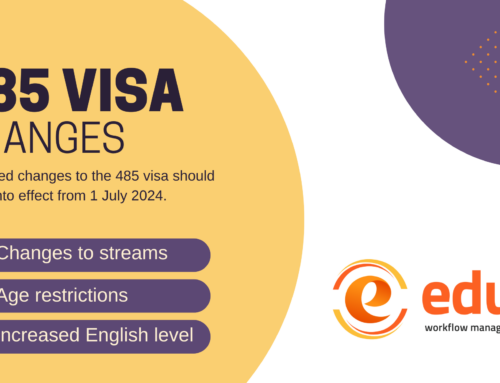A recent survey finds that Canada is the most desirable country in which to study abroad.
Canada ranks first among all countries in IDP Education’s Emerging Futures study, which was conducted in March. This is largely because of the opportunity to gain work experience after graduating.
Out of four major destination countries (Canada, the US, Australia, and the UK), more than 25% of survey respondents chose Canada as their top choice for international study. More than two-thirds (63%) of international students surveyed say that the availability of jobs after graduation is either the primary or a significant factor in their choice of university, and 72% say they intend to apply for a work visa upon completion of their studies.
Discover your options to study in Canada
Sixty-one percent of non-Chinese and non-Indian respondents to the survey said that the possibility of obtaining a work visa after completing their studies was an important factor in their decision to study in Canada. Students from Nigeria, Vietnam, and Ghana showed increases of 63%, 75%, and 58%, respectively.
The article features commentary from IDP Connect’s Director of Client Partnerships for North America, Christine Wach. “Students see Canada as a welcoming, affordable, and safe place to study with good work opportunities available upon graduation,” she said, citing the survey’s findings. In addition, the study found that 53% of students place a high importance on the availability of employment opportunities after graduation. The study also found that 61% of students cited a desire for a high-quality education as a deciding factor, and that 43% were actively seeking employment alongside their studies.
International students in Canada are allowed to work up to 20 hours a week throughout the academic year without obtaining a work permit. They may work full-time during winter and summer holidays provided they return to full-time studies the following semester. The study found that 81% of respondents were already working or planning to work part-time during their studies.
Post-Graduation Work Permits
Canada offers graduating international students the opportunity to apply for a Post-Graduation Work Permit (PGWP) as a way to gain experience living and working in Canada. This experience can be used towards getting status as a permanent resident and eventually becoming a Canadian citizen, if so desired. PGWPs are a one-time-only permit and are valid for up to three years depending on the length of the international student’s program of study. To be eligible, they must have completed their program as a full-time student at a designated learning institution.
Findings from the study show that international students care more about gaining work experience to help them break into the Canadian job market than they do about how long they can stay in the country after they graduate. Only 48% found that extended work rights after graduation were most appealing because of the length of stay. If the post-study visa were shorter, however, 44% of students said they would consider relocating their studies elsewhere.
Why does Canada need international students?
Canada is currently host to over 800,000 international students and works hard to position itself as a top destination for post-secondary education. Retaining graduates in Canada after they complete their studies can be beneficial for the labour force and economy, as the country’s population is aging and the number of job vacancies remains high.
Statistics Canada data from the year 2022 shows that immigrants who had studied in Canada tended to be younger, more educated, more likely to speak an official language, and much more likely to have earned money in Canada prior to admission.
Wach says that to remain attractive to students in the face of competition from other countries, Canada needs to create more diversity in the classroom and the future workforce.
More work is needed to raise awareness of the contribution students make as employees and to improve access to work opportunities for international students, so policymakers, educators, and employers should connect in meaningful ways. If this is accomplished on a federal and provincial level, “we will see more diversity in the students coming to Canada and in the places where they choose to study within Canada,” Wach predicted.
The study found that because of the high cost of living, international students require more assistance and counseling. The study found that 51% of potential international students are rethinking their study abroad plans because of price increases. Institutions are being contacted by students for help in finding part-time work and providing transparent information about the total cost of attendance.
Source: CIC News
#studyabroad #studyincanada #educli #internationalstudents




